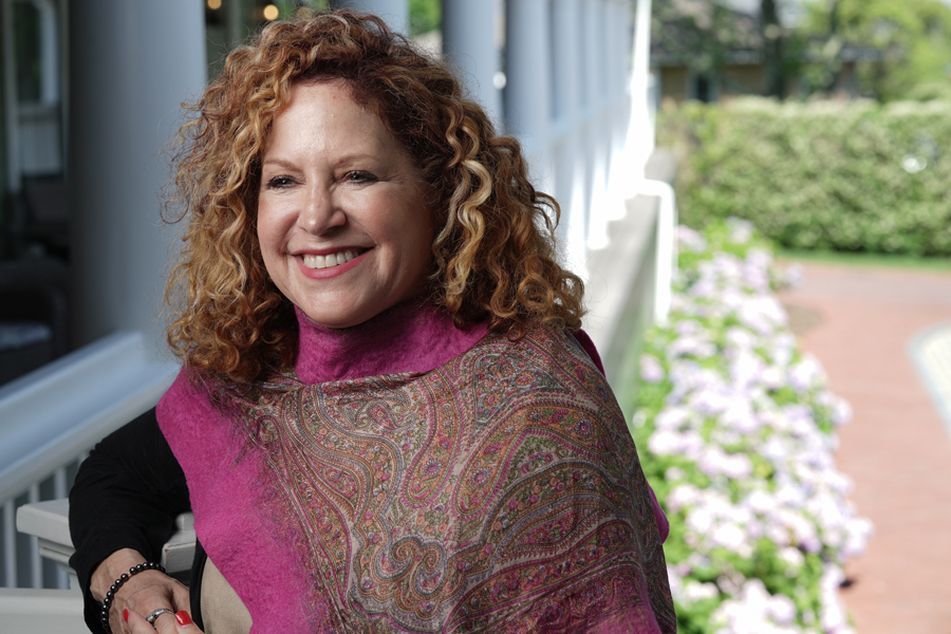The power of philanthropy shifts to women, and advisers are taking notice

Philanthropic women are growing in number — and stature.
Financial adviser Randy Kaufman once worked with an artist making a generous bequest to a midwestern university. The university wanted to put her name on a building as a recruitment tool. The painter wanted to stay in the background.
“I had to beg and plead and tell her it wasn’t egotistical,” said Ms. Kaufman, senior vice president at EMM Wealth, a wealth management firm with $2.6 billion in assets under management. “She finally agreed.”
Research has long showed that women are more philanthropic than men: They are more generous with their giving and they donate to more causes than men.
Now, as philanthropic women grow in wealth and number — partly because they tend to live longer and are thus expected to inherit a growing share of the nation’s wealth, but also because women are earning more than previous generations and remaining single for longer — advisers are paying more attention to all the ways that women give differently than men.
Data and anecdotal evidence show women are more emotionally invested in their causes, tend to want to donate time as well as money, are more driven by impact, prefer to plan out their giving and, as Ms. Kaufman’s anecdote illustrates, are more apt to listen to expert advice when making philanthropic decisions. Women also may be less concerned with or knowledgeable about taxes and the personal financial benefits of charitable giving, research suggests.
“There’s a lot of power, influence and impact that we anticipate women having,” said Bruce DeBoskey, founder of an eponymous consulting firm focused on helping families, individuals, foundations and businesses with philanthropy.
Eventually, as women come into their own, their more holistic attitude has the potential to reshape the very idea of giving.
Impacting investing
Most notably, women are a driving force in the impact investing movement, which is essentially spreading some of the mission of philanthropy to investment decisions, elevating measurable impact as a consideration equal to risk and return.
“It’s the presence of women that is creating impact investing,” said Ms. Kaufman, whose firm serves the high- and ultra-high-net-worth market.
At the upper end of the age/wealth demographics, women are increasingly interested in spreading the values they apply to their philanthropy to their investments, advisers report.
Some 18% of women, versus only 10% of men, own an impact investment, according to the 2017 U.S. Trust Insights on Wealth and Worth Survey. Women are 33% more likely than men to say that their investments are a way to express their social, political and environmental values, the same study found.
Women are showing a willingness to give up returns to embrace impact investing.
Public and private impact investments so far are underperforming mainstream indexes like the S&P 500.
For instance, the 15-year annual average return on 70 private equity funds in the Cambridge Associates Impact Investment Index was 6.1%, compared with 10.04% over the same time period for the S&P 500 and 12.86% for the MSCI Emerging Markets Index.
Impact investing might not be a strictly rational approach viewed from a dollars-and-cents point of view, skeptics have pointed out. If impact investing means people sacrifice 4%-5% in returns, wouldn’t they be better off investing in a traditional investment and turning that 4%-5% toward pure philanthropy?
(More: Impact investments made by more than 70% of millennials and Gen Xers)
That may be so — but women just aren’t as engaged in the kind of transactional thinking that has shaped the worlds of philanthropy and investing for decades, advisers said.
“Women, especially younger women, who are giving 5% in their foundations are more likely to come in and say, ‘Why are we not wholeheartedly committing our money to make change on the causes we care about?’” said Megan Watkins, national practice executive in the philanthropic solutions group of U.S. Trust.
Ms. Kaufman echoed her observation.
“I have never heard a woman say, I want to beat an arbitrary index or have more money than my brother-in-law,” she said.
Where help is needed
Advisers serving women in areas of philanthropic giving find they often need help to discern the particular benefits of gifting vehicles.
About 54% of women, versus 64% of men, reported feeling confident about which assets to contribute to charity, according to a 2016 survey of 3,254 men and women who give through Fidelity Charitable, one of the nation’s largest donor-advised funds.
 “When I think about the kinds of conversations I’m having with women, it’s about how they can make a positive difference.” Megan Watkins SVP Philanthropic Solutions Group, U.S. Trust
“When I think about the kinds of conversations I’m having with women, it’s about how they can make a positive difference.” Megan Watkins SVP Philanthropic Solutions Group, U.S. Trust About 40% of women, compared to 52% of men, reported feeling confident about which tax strategies to use when gifting.
Ms. Watkins cautioned against taking a simplistic view of those findings. They might also suggest that women are less interested in the tax benefits and personal financial implications of giving.
“I haven’t observed less confidence,” said Ms. Watkins, whose group tends to serve families with $25 million to $250 million. “But there tends to be less focus on taxes, and more focus on values and motivations. When I think about the kinds of conversations I’m having with women, it’s about how they can make a positive difference. I wonder if this is less a confidence issue and more a question of getting to the heart of the motivation.”
The differences between men and women hold true across demographics and generations and advisers for mass affluent and high-net-worth women clients report similar experiences.
Because women are more holistic and more intentional, “it may take longer to make a decision,” Marguerita Cheng, a certified financial planner with Blue Ocean Global Wealth, said in an email. “Women value the financial and social impact of these decisions.”
They also seek to support multiple causes and priorities with their donations.
Ms. Cheng described a retired medical librarian, with an annual income between $60,000 and $70,000, who every year gives away $6,000 to $8,000 to three causes: education, her spiritual home and cancer research.
Giving plans
Advisers are helping women create deliberate giving plans and research charitable organizations, another factor women seem to value more than men.
Some 61% of women in the Fidelity Charitable survey said they seek out information from charity rating services, compared with 47% of men.
About 12% of women, versus 6% of men, reported that they reach out for help from an adviser.
Finally, advisers are creating a safe space for women in situations where the entire family is or should be involved in a foundation. Advisers helping to start a family foundation can find themselves playing mediator between the sexes.
Women emerging as philanthropic leaders may want the services of an adviser to prepare a plan or to do tax planning, but the men need real help to let go of the command-and-control habits they tend to depend on when creating wealth.
“I have one client who literally has me sit next to him at family meetings, so I can kick him under the table if he starts to revert,” Mr. DeBoskey said. “He wears cowboy boots. I get paid by the kick.”
Elizabeth MacBride is a freelance writer.
Learn more about reprints and licensing for this article.








